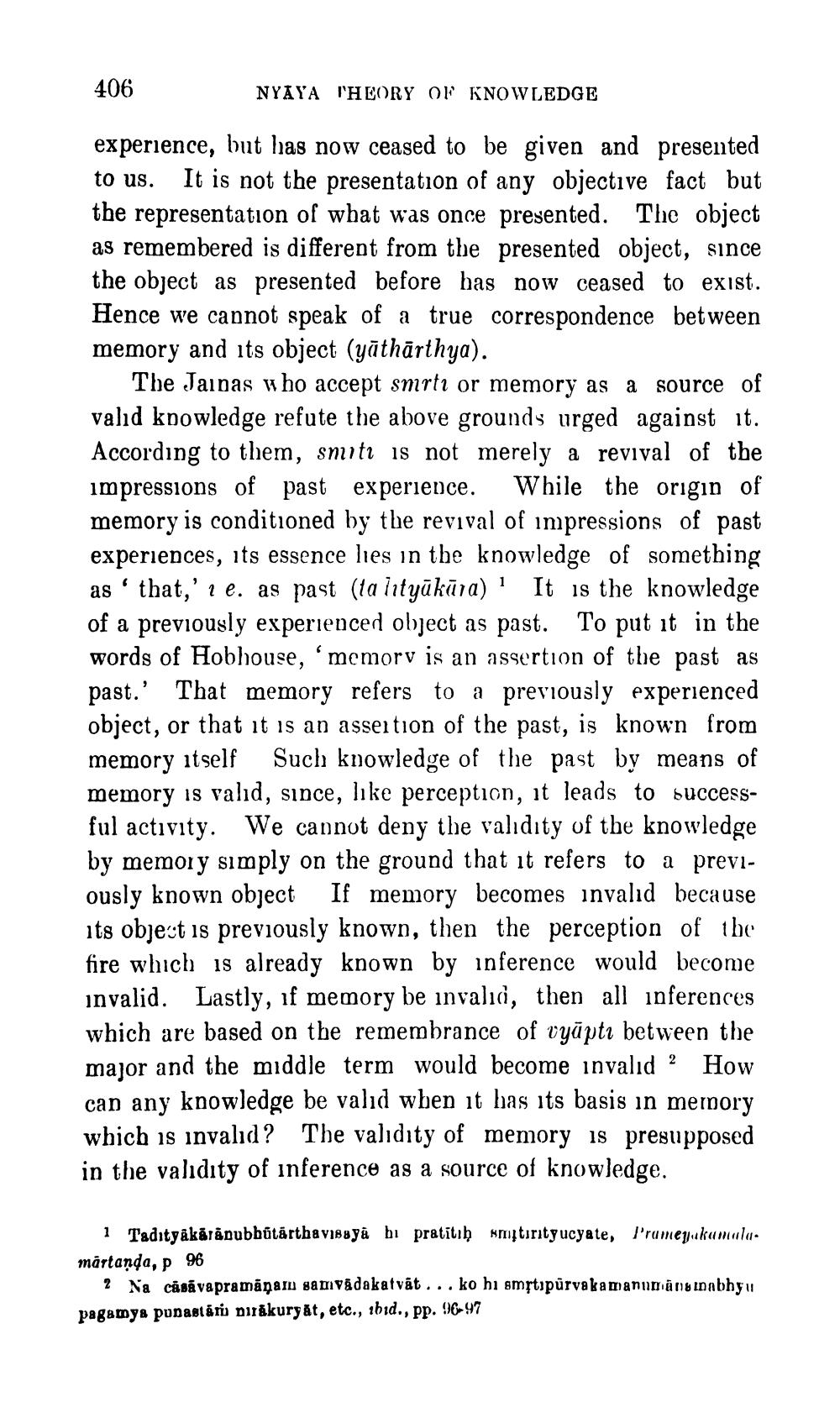________________
406
NYAYA "HEORY OF KNOWLEDGE
experience, but has now ceased to be given and presented to us. It is not the presentation of any objective fact but the representation of what was once presented. The object as remembered is different from the presented object, since the object as presented before has now ceased to exist. Hence we cannot speak of a true correspondence between memory and its object (yāthārthya).
The Jainas who accept smrti or memory as a source of valid knowledge refute the above grounds urged against it. According to them, smiti is not merely a revival of the impressions of past experience. While the origin of memory is conditioned by the revival of impressions of past experiences, its essence lies in the knowledge of something as' that,'2 e. as past (ta lityūkūra)' It is the knowledge of a previously experienced object as past. To put it in the words of Hobhouse, 'memorv is an assertion of the past as past.' That memory refers to a previously experienced object, or that it is an assertion of the past, is known from memory itself Such knowledge of the past by means of memory is valid, since, like perception, it leads to successful activity. We cannot deny the validity of the knowledge by memory simply on the ground that it refers to a previously known object If memory becomes invalid because its obje:t is previously known, then the perception of the fire which is already known by inference would become invalid. Lastly, if memory be invalid, then all inferences which are based on the remembrance of vyāptı between the major and the middle term would become invalıd ? How can any knowledge be valid when it has its basis in memory which is invalıd? The validity of memory is presupposed in the validity of inference as a source of knowledge.
i Tadityäkäräpubbūtárthavasya bi pratitih m rityucyate, Promejukumula. märtanda, p 96
2 Na căsá vapramāņam samvadakatvāt ... ko hi smrtipūrvakamanumanainabhyu pagamya punastári nurákuryat, etc., ibid., pp. 96-97




